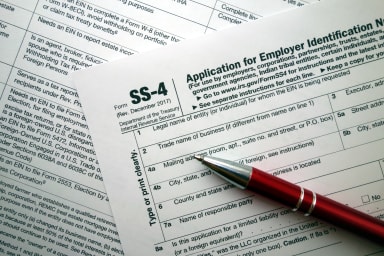Here’s a novel thought. Let Uncle Sam pay for your holiday gifts and entertaining.
No, I’m not talking about anything illegal. You can’t buy personal gifts and bill them to your business. That’s called fraud. But if your business uses the cash method of accounting (as most sole proprietors do) you may be able to legally cut your tax bill by hundreds or thousands of dollars by making a few strategic decisions for your business between now and the end of the year. If you’re a sole proprietor, those tax savings may more than cover your holiday spending.
Here’s how to make it happen.
Defer income
Are you having an unusually good year this year? That windfall profit may look good now in your accounting software. But come tax time, Uncle Sam and his state and local cousins could take away a big chunk of it — especially if the windfall profit bumps you up into a different tax bracket.
One way to minimize that tax bite this year is to defer some end-of-the-year income into 2023. You can do that by waiting to send out invoices until the first week in January. That ensures you won’t get checks or ACH payments until next year. You can also delay calling or sending reminders to late payers until the beginning of the new year.
You’ll still have to pay taxes on the profits next year, but you reduce your taxes for this year.
One caveat: Holding onto checks you receive this year and waiting until 2023 to deposit them doesn’t work. For cash-basis businesses, the IRS considers the year you constructively received a check to be the year the income is earned, not the year you deposit it in the bank. “Constructively receiving income” means you have control over what happens to it.
How does the IRS know when you received checks? Those 1099 statements your clients send you are also sent to the IRS.
If a client dates a check December 31 and includes it in your 2022 1099, but you don’t receive the check until January of 2023, the income should be reportable for 2023. But you might have to include a note when you file your tax return to explain the discrepancy in your 2022 income. Ask your accountant for guidance.
Use the Section 179 expense deduction
Some purchases you make for your business are considered capital expenditures. These are things like tangible items that you use and don’t get used up, such as a computer, desk, or machine. The traditional way to deduct the cost of such items is to depreciate them over a number of years. In other words, you deduct part of the cost each year over the useful life of the item.
However, under Section 179 of the tax law, you can choose to deduct the entire cost of such business purchases in one year instead of depreciating them over time. This is called “expensing” the cost. Thus, Section 179 is often referred to as the expense deduction.
So, if you’ve had a profitable year and you’ve been thinking about buying some equipment, this could be the time to do it. Making the purchase and putting it to use before the end of the year could save you a lot on your taxes. Here’s how:
Say you’re operating as a sole proprietor for tax purposes and you’re showing a profit for this year of $107,000, which will pass through to your personal income tax return. Assuming your federal income taxes plus self-employment taxes come to 23% of your income, you’ll pay around $24,610 in taxes.
There’s some equipment you want to buy for the business that costs $24,000.
If you buy and expense (deduct) that $24,000 equipment on this year’s tax return, the profit that passes through to your personal tax return will drop to $83,000 ($107,000-$24,000). Assuming you are still taxed at 23%, you’ll pay $19,920 in taxes instead of $24,610 – a savings of $4,690.
What kind of property qualifies for the expense deduction?
The expense deduction can be used for any type of tangible property.
Depending on the nature of your business, you could take a 179 deduction for things such as computers, phones, a 3-D printer, lab equipment, machinery, mechanics tools, office furniture, or even a new SUV if its primary use is for the business.
If you’re planning to make a substantial purchase to take advantage of the 179 deduction, talk to your accountant first. They’ll help you decide whether you’d be better off deducting the expense in one year or depreciating it over time.
Can you use the 179 expense deduction if you have a loss?
If you’re operating as a sole proprietor for tax purposes, and you have a business loss for the year, you might still benefit from Section 179. If you have other personal income (W-2 earnings, for instance), the loss from the business would pass through to your personal return and reduce the taxes due on your personal earnings.
If you don’t have other personal income to offset a loss, the loss would carry over to a future year when you do have a profit.
If you’re operating as a corporation, or S corporation for tax purposes, you can’t deduct a business loss against personal income. If you take the 179 expense deduction, the loss would carry forward to future years when you do have a profit.
Section 179 Limitations
For the year 2022, the maximum Section 179 expense deduction is $1,080,000. That amount gets reduced if your business puts more than $2,700,000 in Section 179 property into use in the year. Additionally, the maximum Section 179 expense deduction for sport utility vehicles placed in service in your business in tax years beginning in 2022 is $27,000.
Maximize other ordinary expenses of running your business
All the ordinary and necessary expenses of running your business are tax deductible. So, if you’re having a banner year, consider speeding up the purchase of some items that qualify as ordinary expenses. The increased deductions will lower your income for the year. There are plenty of options. For instance:
- If you have a monthly subscription to a photo licensing site, change it to a yearly subscription and pay for the full year now. Besides the tax deduction, you may get a price break by switching to an annual instead of a monthly price.
- Load up now on ink cartridges for your printer.
- Order several months’ worth of paper, shipping boxes, labels, and other office supplies you regularly use.
- Replace the worn chair mat in your office.
- Order new candy or soap-making molds for your craft business.
- Get new signage for your storefront, or a new display for your tradeshow booth.
- Have your office repainted.
- Order promotional products such as pens or magnets to give out to your customers.
Put your kids to work on weekends and the holiday vacation
Make them earn the money they spend on gifts instead of just giving it to them. You benefit by converting a personal expense into deductible business expense (your child’s salary) and by helping teach your kids the value of a dollar. They benefit by making money and learning real work skills that can help them get jobs elsewhere later on.
If your child is under the age of 18, the salary you pay them isn’t subject to Social Security and Medicare taxes if your business is a sole proprietorship or a partnership jointly owned by the two parents. The salary isn’t subject to FUTA if the children are under 21. But in either case, the income is still subject to income tax withholding. Learn more about hiring family on the IRS website.
Give your retired parents or in-laws a job during the holidays
This presumes your retired relatives want to work, and what you pay them won’t negatively affect their Social Security payments. They benefit from the extra income they earn, which, depending on their income, may be taxed at a lower rate than yours. They can also benefit from the satisfaction they feel by contributing their skills and knowledge to your success. You get a tax deduction for the money you pay your parents — money you might otherwise just give to them if they are in financial need.
Here’s what to know:
A person can earn an unlimited amount of money from a job and still collect the full Social Security benefit once they have reached full retirement age.
But if they earn money from a job and haven’t reached full retirement age, there’s a cap on how much they can earn from the paid job without losing some of their Social Security income.
There are two different earnings limits. One is for the years preceding the year you reach your full retirement age. There’s a different limit for the year you reach full retirement age.
For 2022, the limit is $19,560 for those who won’t reach full retirement age in 2022. Once you reach that earnings limit, the IRS deducts $1 in Social Security benefits for every $2 earned.
The earning limit changes in the year you reach full retirement age. Thus, for individuals who reached full retirement age during 2022 (July 1, 2022, for instance), the earnings limit is $51,960. The IRS deducts $1 in benefits for every $3 earned above $51,960. But it only counts the earnings before the month you reach full retirement age. From that point on, there’s no reduction in earnings no matter how much you make.
Confusing? A bit. But when did the IRS ever make things easy to understand?
Throw a holiday party for your employees
Unlike other entertainment expenses, holiday parties or company picnics are fully deductible. That’s because they work as an incentive to boost morale and company team spirit. About the only hitch is that you have to invite all employees, and the parties do have to be special events, not a routine occurrence.
Fund your retirement
If you haven’t already done so, be sure to set up a qualified retirement plan if you’re self-employed and fund it. Depending on the type of plan you set up, you may be able to put anywhere from $6,000 to over $300,000 dollars in a tax-deferred retirement account. Rules and requirements are complicated for anything other than a traditional IRA. So, if you have the earnings to put away a lot, consult with your accountant to determine the right retirement savings plan for you.
Compare your retirement plan options
Janet Attard is the author of The Home Office and Small Business Answer Book (published by Henry Holt & Company) and of Business Know-How: An Operational Guide for Home-Based and Micro-Sized Businesses With Limited Budgets (published by Adams Media, Inc.).
Disclaimer: The content on this page is for informational purposes only, and does not constitute legal, tax, or accounting advice. If you have specific questions about any of these topics, seek the counsel of a licensed professional.
Tax Information and Resources







